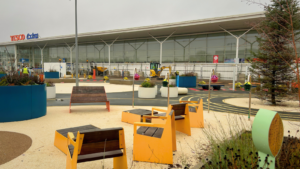Prices of construction materials are already high, however an expert has warned that the current tragedies occurring on the Red Sea could impact the supply and price of materials used in UK construction sites.
On 12th January the US and UK armed forces launched a string of military strikes in Yemen. This action saw 60 targets hit across 28 Houthi-held locations in the west of the country, and targeted munitions depots and launching systems, in an effort to limit the rebel group’s ability to launch further attacks.
The attacks came after a campaign by the Houthi rebels in the Red Sea in retaliation against Israel’s action in Gaza.
As a result of the action, some of the largest shipping companies, including Maersk, Hapag-Lloyd, and Mediterranean Shipping Company, have suspended travel along the route.
However, experts are predicting that more companies could be impacted, as, in an unfortunate turn of events, the attack on 12th did not just stop at the one. On Tuesday, a Greek-owned bulk carrier was damaged after being hit by a missile while traveling in the southern part of the Red Sea – the third incident to happen in three days.
In one particular case, Noble Francis, Construction Products Association economics director, has warned that a long conflict could make it even more difficult and expensive to import certain materials.
‘If disruptions persist, it will significantly affect some imported products through delayed supply and [further] rise sin freight prices,’ Francis said. ‘Construction product prices are still high so if the disruptions persist in the Red Sea, it could lead to some delays and construction product price rises, exacerbating problems for some housebuilders and contractors in 2024.’
As it stands, delivery prices have already skyrocketed as a result of climbing inflation, with one shipping marketplace showing a trebling in the past month of the cost of bringing a 40ft container from China to Northern Europe.
Against this backdrop, Francis pointed out that although three-quarters of products used on UK construction sites are made in this country, some reply on parts from abroad.
Francis added: ‘Manufacturers using imported materials, or components and product importers, will be keeping a keen eye on [the conflict] to see if it is a temporary blip or has effects over the course of months.’
Image: Nathan Cima
Construction industry concerned about switching to sustainable building materials

















Leave a Reply